Instructions
Worksheets
Overview
In this experiment you will continue to study collisions, this time focusing on collisions between two objects that can both move freely in a straight line. Two sonic rangers will be required, one to measure the position of each object. For simplicity, you will focus on collisions where one of the objects is stationary (or nearly so). The position of each glider will be measured and its velocity will be found by numerical differentiation. The momentum of each glider can be found by multiplying by mass and the kinetic energy can be found using \(K=\frac12 mv^2\).
Experimental Measurements
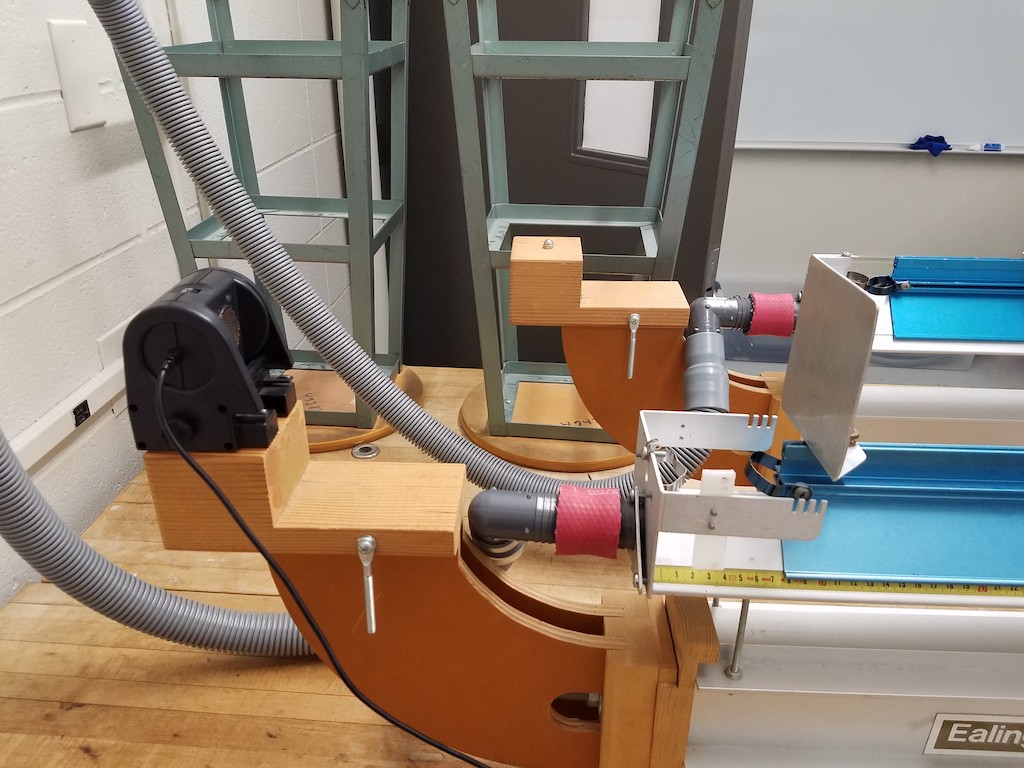 |
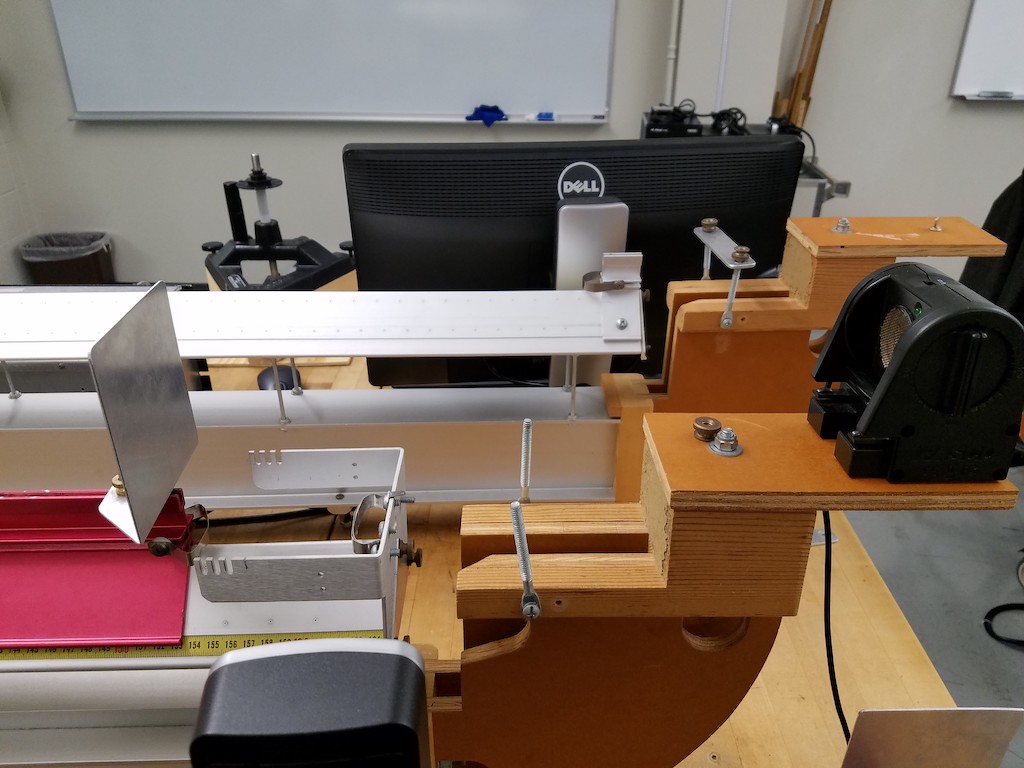 |
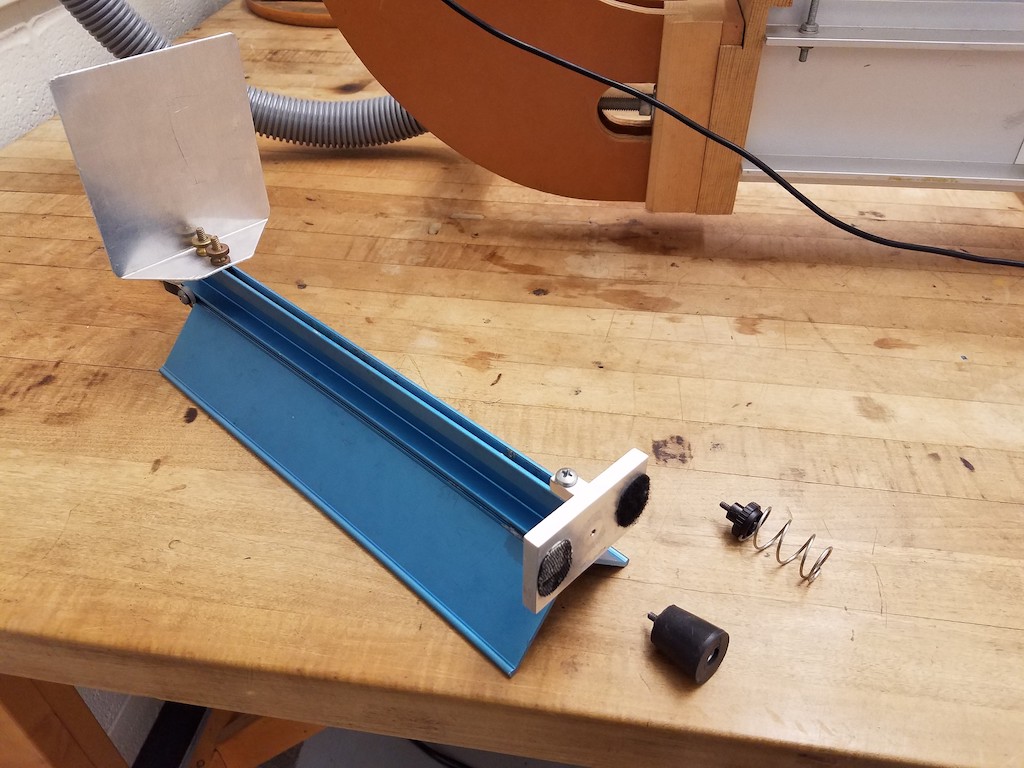 |
| Figure 1: Glider 1 and Sonic Ranger 1 | Figure 2: Glider 2 and Sonic Ranger 2 | Figure 3: Glider with Collision Attachments |
The basic experimental setup is shown in Figure 1 and 2. Two gliders are allowed to move on a horizontal air track. The position of each glider is measured by an independent sonic ranger. The position data are numerically differentiated within the Physics Lab Assistant software to obtain velocity and then waveforms for the total linear momentum of the system \(p_\textrm{total} = m_1 v_1 + m_2 v_2\) and the total kinetic energy of the system \(K_\textrm{total} = \frac12 m_1 v_1^2 + \frac12 m_2 v_2^2\) are computed. These data are depicted below in plots showing the position of each glider, the velocity of each glider, the total momentum, and the kinetic energy for four different trials with different collision attachments.
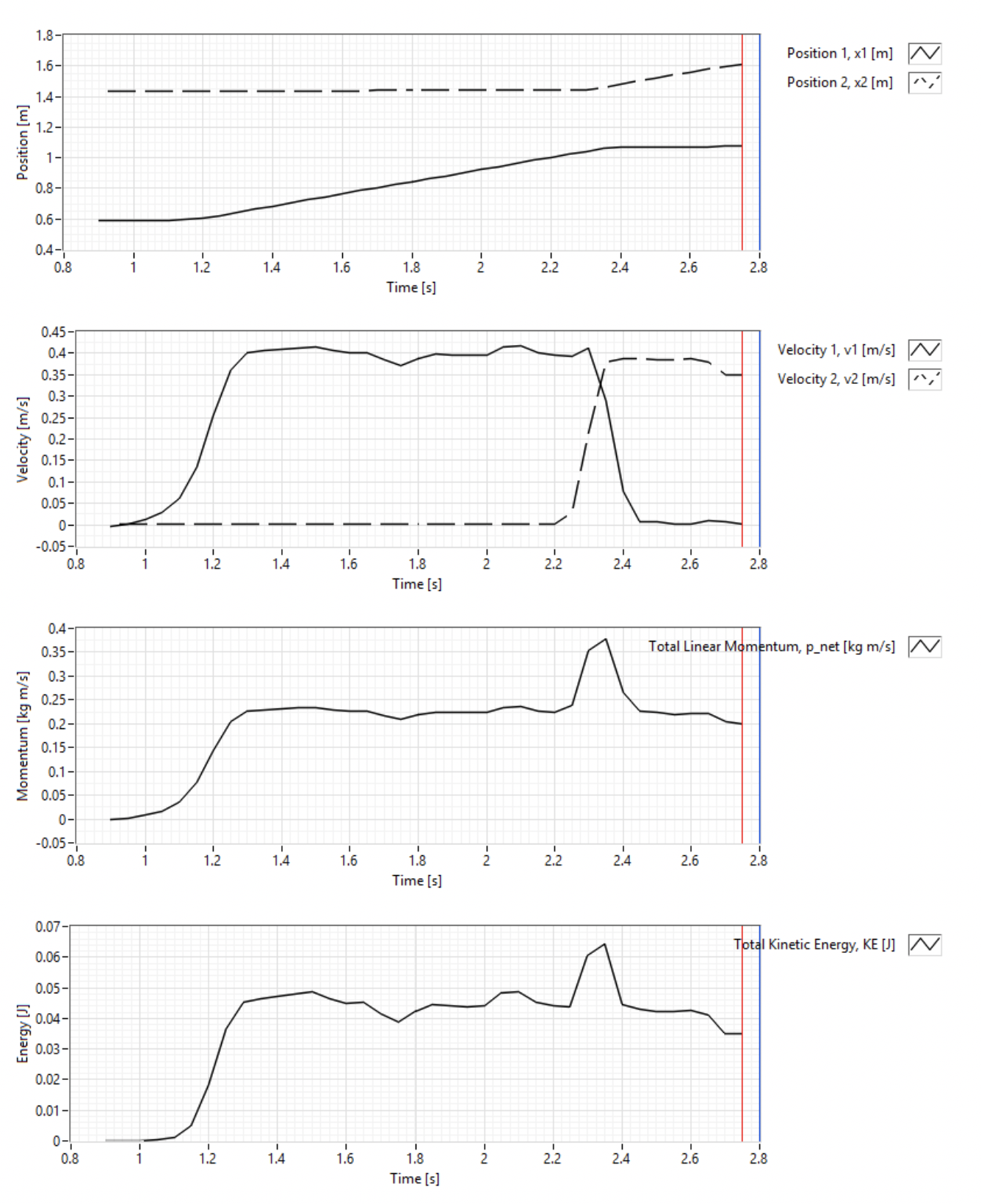 |
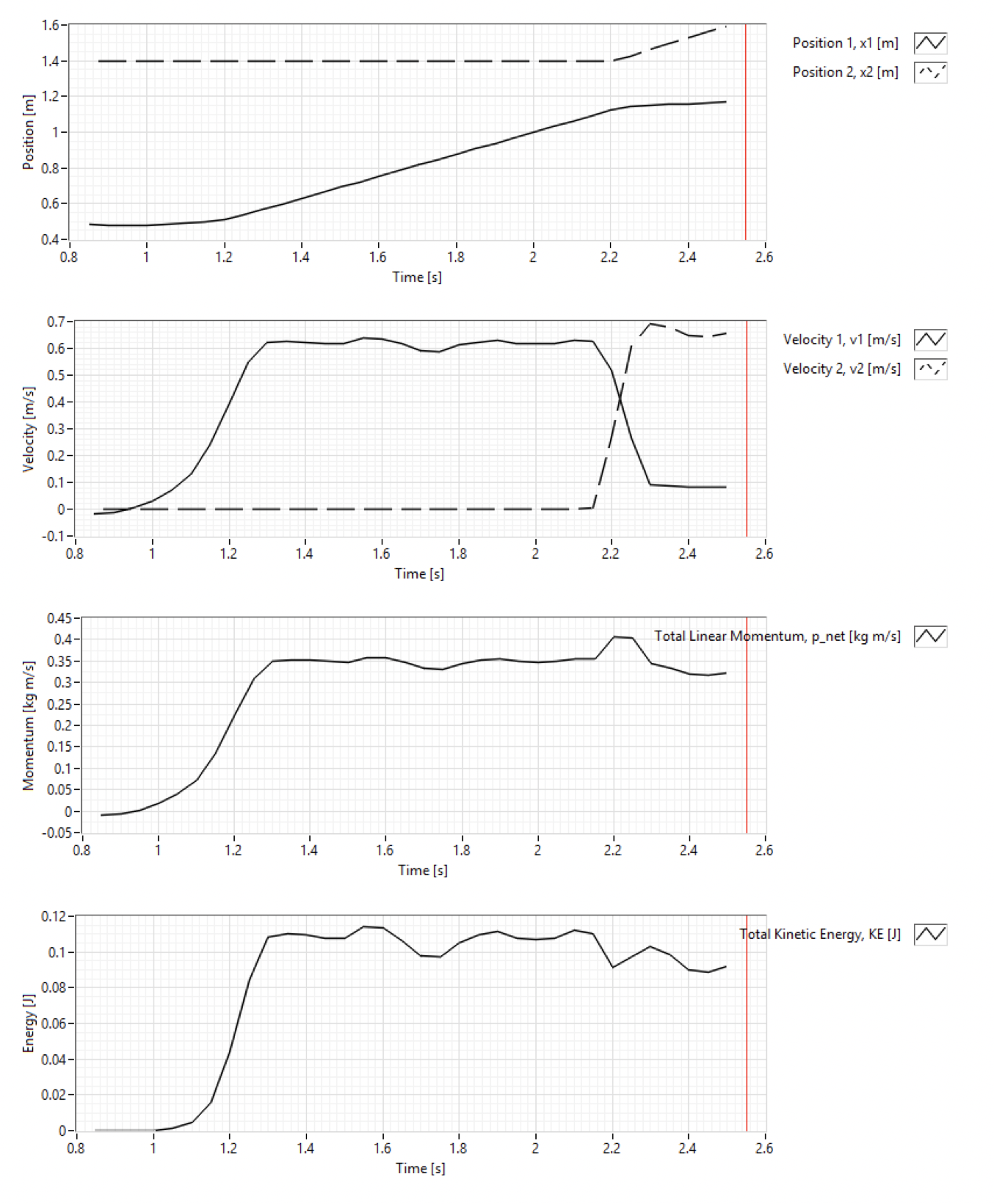 |
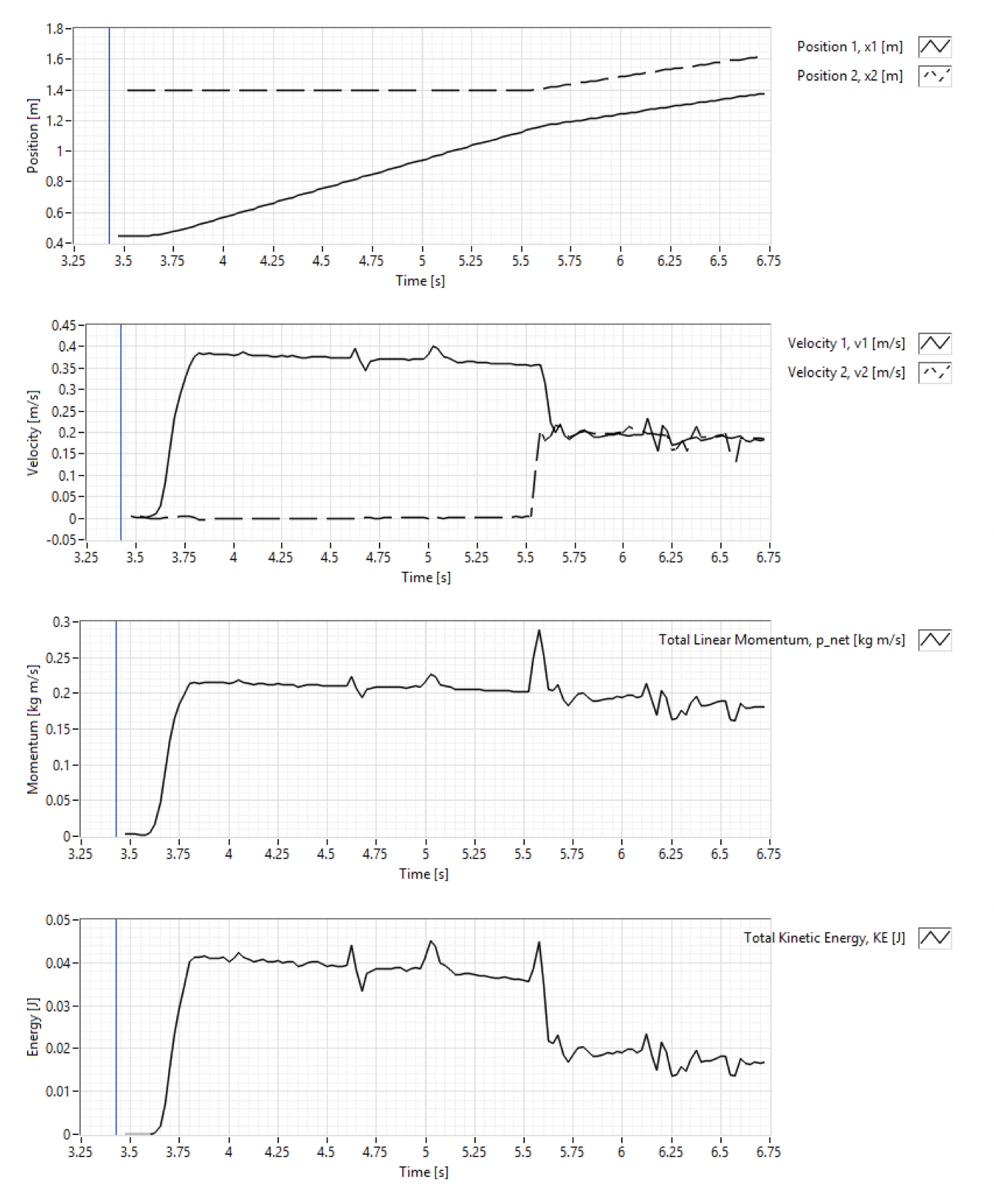 |
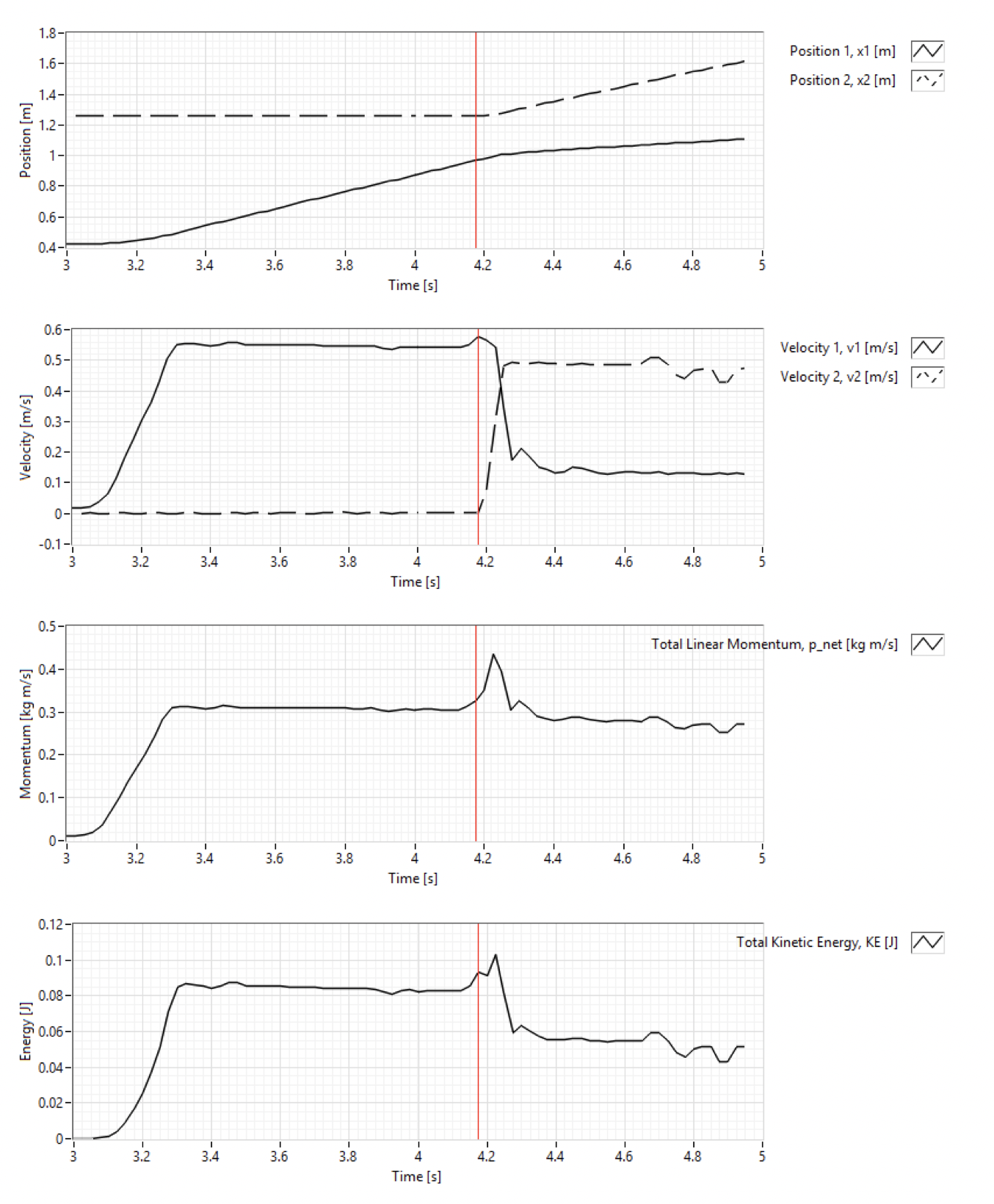 |
| Figure 4: Equal Masses, Spring | Figure 5: Unequal Masses, Spring | Figure 6: Unequal Masses, Velcro | Figure 7: Unequal Masses, Rubber |
Using these data, cursors were placed on regions before or after the collisions to find the average total momentum and average total kinetic energy before and after the collision. These results are summarized below.
| Trial | 1 | 2 | 3 | 4 | |
| Attachment | Spring | Spring | Velcro | Rubber Bumber | |
| Mass 1 | kg | \(0.5623\) | \(0.5623\) | \(0.5623\) | \(0.5623\) |
| Mass 2 | kg | \(0.5690\) | \(0.4205\) | \(0.4205\) | \(0.4205\) |
| Initial Total Momentum | kg m/s | \(0.2253 \pm 0.0012\) | \(0.3599 \pm 0.0036\) | \(0.2028 \pm 0.0003\) | \(0.3057 \pm 0.0003\) |
| Final Total Momentum | kg m/s | \(0.2225 \pm 0.0014\) | \(0.3644 \pm 0.0048\) | \(0.2045 \pm 0.0011\) | \(0.2959 \pm 0.0057\) |
| Initial Total Kinetic Energy | J | \(0.0446 \pm 0.0005\) | \(0.1137 \pm 0.0023\) | \(0.0361 \pm 0.0002\) | \(0.0828 \pm 0.0002\) |
| Final Total Kinetic Energy | J | \(0.0426 \pm 0.0002\) | \(0.1126 \pm 0.0009\) | \(0.0214 \pm 0.0003\) | \(0.0578 \pm 0.0010\) |

